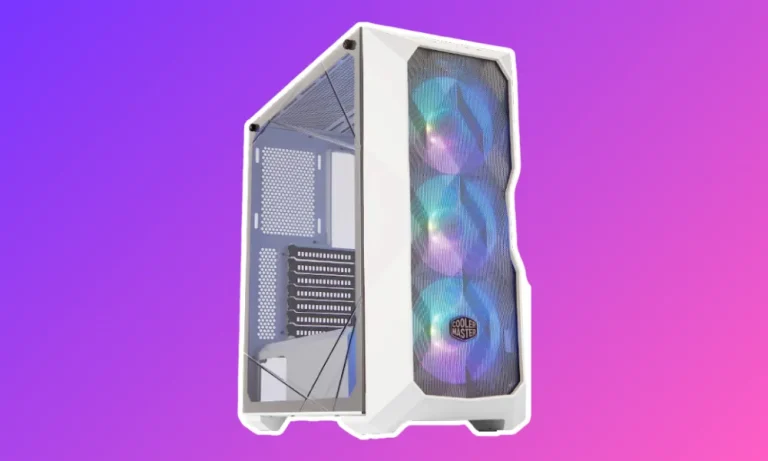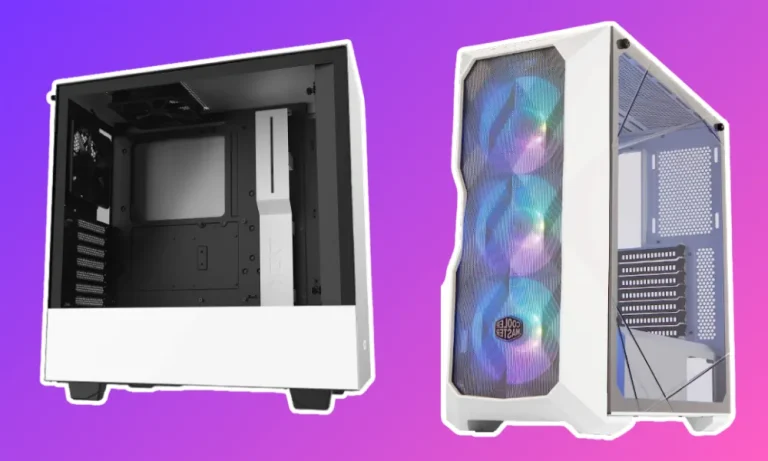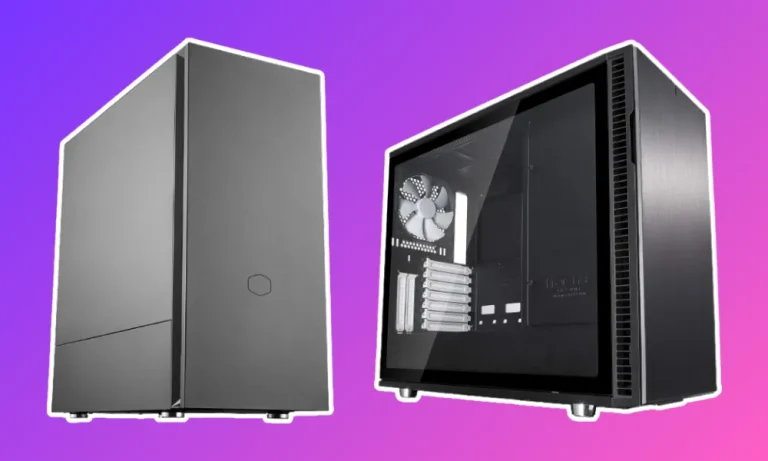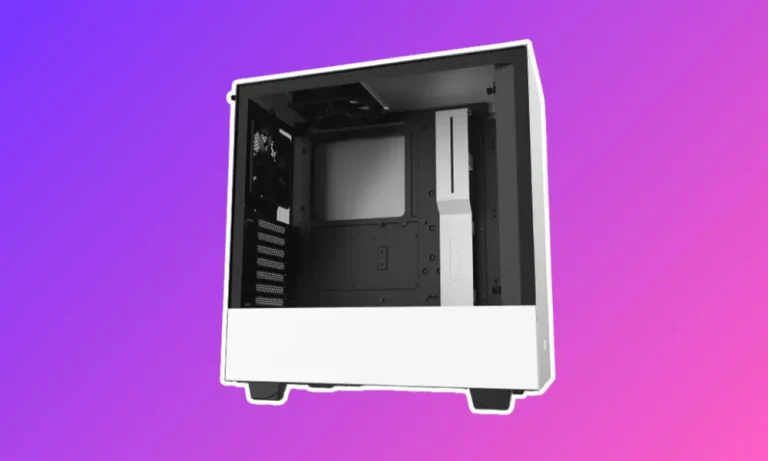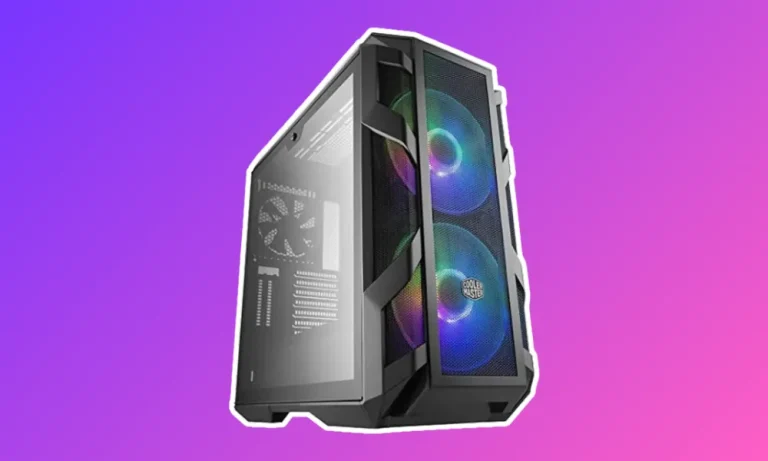Open PC Cases vs. Closed PC Cases: Which is Better for Your Gaming Rig?
Choosing the right PC case is like finding the perfect armor for your gaming rig. When it comes to open and closed PC cases, there’s a lot to consider. Open cases offer enhanced airflow and a chance to show off your hardware bling, while closed cases provide better noise reduction and cable management.
Let’s dive in and explore which one suits your needs best!
Understanding Open PC Cases
When it comes to open PC cases, it’s like having your gaming rig on full display for everyone to admire. These cases are designed with a focus on maximizing airflow and providing easy access to components.
Open PC cases are characterized by their spacious design and lack of solid panels or covers. Instead of being enclosed in a traditional box-like structure, these cases feature an open framework that allows for better ventilation and heat dissipation.
Advantages
- Enhanced Airflow and Temperature Management: The absence of solid panels enables unrestricted air movement within the case, leading to improved cooling performance. This helps prevent overheating during intense gaming sessions.
- Easy Access to Components: With an open case design, accessing internal components becomes a breeze. Whether you need to clean out the dust or upgrade certain parts, no barriers are hindering your progress.
- Showcasing Custom RGB Lighting or High-end Hardware Aesthetics: Open PC cases offer the perfect canvas for displaying your hardware pride! You can easily showcase custom RGB lighting setups or flaunt high-end graphics cards without any obstructions.
Disadvantages
- Prone to Dust Accumulation Without Proper Filters: Since open PC cases lack protective panels, they tend to accumulate dust more quickly than closed ones. Regular cleaning is essential to maintain optimal performance and prevent potential damage caused by excessive dust build-up.
- Increased Noise Due to Lack of Sound-dampening Features: The openness of these cases means that noise generated by fans and other components is less contained compared to closed ones with sound-dampening features in place.
Exploring Closed PC Cases
When it comes to closed (traditional) PC cases, they offer a more classic and enclosed design. These cases are known for their ability to reduce noise levels, maintain cleanliness, and enhance overall aesthetics.
Closed PC cases are characterized by their solid panels that enclose the components within a protective housing. Unlike open cases, these traditional designs provide a more contained environment for your gaming rig.
Advantages
- Better Noise Reduction with Soundproofing Materials: Closed PC cases often come equipped with soundproofing materials that help dampen fan noise or vibrations generated by other hardware components. This ensures a quieter gaming experience without compromising performance.
- Built-in Dust Filters for Improved Cleanliness Inside the Case: One standout feature of closed PC cases is their built-in dust filters. These filters help prevent dust particles from entering the case, reducing the risk of component damage caused by excessive dust accumulation.
- Concealed Cable Management Options Improving Overall Aesthetics: Closed PC cases usually offer better cable management options compared to open ones. With strategically placed cable routing channels or compartments behind motherboard trays, you can achieve cleaner cable organization and improve the overall visual appeal of your setup.
Disadvantages
- Limited Airflow May Lead to Higher Temperatures if Not Properly Ventilated/Optimized: Due to their enclosed nature, closed PC cases may have limited airflow compared to open ones. Without proper ventilation or optimization through additional fans or liquid cooling solutions, higher temperatures inside the case can impact system performance.
5 Factors to Consider When Choosing Between Open and Closed Cases
When it comes to selecting the perfect PC case for your gaming rig, there are several factors that you should take into consideration. Whether you’re leaning towards an open or closed case design, here are five key factors that can help guide your decision-making process.
1. Cooling Efficiency
Proper cooling is crucial in maintaining system stability during intense gaming sessions.
Open cases generally offer better natural airflow due to their spacious design, while closed cases may require additional fans or liquid cooling solutions for optimal heat dissipation within the enclosed environment.
2. Noise Levels
Consider the significance of a quiet environment during prolonged gaming sessions.
Open cases tend to have fewer sound-dampening features compared to closed ones, which means fan noise or other hardware sounds might be more noticeable in an open-case setup.
3. Component Compatibility
Think about the components you plan on using in your build and how they will fit within your chosen case type.
Some high-performance hardware generates more heat and noise than others, so make sure both open and closed cases can accommodate these components effectively.
4. Aesthetics and Personalization
Visual appeal plays a significant role in personalizing your gaming rig.
Open cases excel at showcasing impressive RGB lighting setups or intricate graphics cards with unobstructed views, while closed cases focus on clean lines and concealed cables for a sleeker aesthetic.
5. Practicality and Maintenance
Consider practical aspects such as ease of access for maintenance purposes or future upgrades when choosing between open and closed designs.
Both types of cases offer different levels of convenience when it comes to accessing internal components.
FAQs
1: Are open PC cases better for cooling than closed PC cases?
Yes, open PC cases generally provide better airflow and temperature management, which can help in keeping your components cool during intense gaming sessions.
2: Will an open PC case make my gaming setup noisier?
Open PC cases tend to have fewer sound-dampening features compared to closed ones. This means that the noise generated by fans and other hardware components may be more noticeable in an open case.
3: Do closed PC cases limit my ability to upgrade or maintain my components
Not at all! Closed PC cases still offer easy access to internal components for maintenance or upgrades. They often come with removable panels or tool-less designs that make the process hassle-free.
4: Will a closed PC case trap heat inside and cause overheating issues?
While it is true that closed PC cases can have limited airflow if not properly ventilated, they also come with options for additional fans or liquid cooling solutions. With proper setup and optimization, overheating issues can be effectively mitigated.
5: Can I showcase my high-end hardware aesthetics in a closed PC case too
Absolutely! Closed PC cases often feature sleek designs and cable management options that contribute to an overall clean aesthetic. You can still showcase your high-end hardware through tempered glass side panels or tasteful lighting accents.
Conclusion
In the battle of open PC cases vs. closed PC cases, it all boils down to personal preferences and priorities. Open cases offer enhanced airflow and a chance to showcase your hardware bling, while closed cases provide better noise reduction and cable management. Choose wisely, based on what matters most to you!

